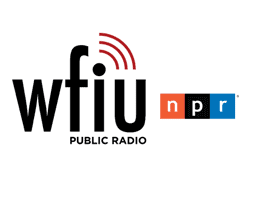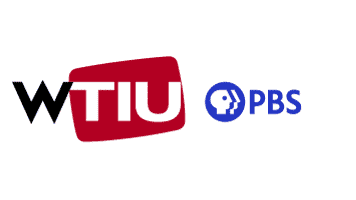WFIU Community Advisory Board Meeting
Via Zoom
Monday, October 5, 2020, 4:00 p.m.
Attending: Alain Barker, Matt Pierce, Nathan Watson, Sara Peterson, Abby Henkel, Judy Stewart, Daren Redman, Catherine Winkler, Sharon Sung Andrews, Hilda Andres, Lauren Dexter Burns, Adrian Starnes, Miah Michaelsen, Brent Molnar. Staff: John Bailey, Eva Zogorski.
Absent: Sarah Taylor, Alexandra Chamberlain, Carolyn Calloway-Thomas, Lacy Hawkins, John Clark, Quinton Stroud, Quincy Robinson.
Alain Barker calls the meeting to order.
Welcome & Introductions
Alain Barker seeks motion to approve July 2020 minutes. Abby Henkel moves. Motion passes.
Public Comment
No members of public are present to comment.
CAB Term Renewals and Transitions
John Bailey requests the board to approve renewal for these members: Alain Barker, Miah Michaelsen, and Catherine Winkler for a final term ending in 2022; Henkel and Quincy Robinson through 2023. Bailey also announces the departure from the board of John Clark and Quinton Stroud effective immediately. Barker notes that all CAB members who have been in board leadership will have rotated out by the end of 2023, and requests board members from across the area volunteer to serve on a nominations committee so that the board may be restocked in short order. Henkel, Hilda Andres, Nathan Watson, and Adrian Starnes offer and are accepted. Bailey solicits prospective members’ names from the full CAB, with a request for consideration of demographic and geographic diversity.
The COVID Effect
Fundraising
Bailey reports that in the weeklong fall drive ending September 28, activity was flat versus the previous fall: against a $135,000 goal, about $124,000 and 768 pledges (compared with last year’s $125,500 and 698 pledges). This represented about 10% more pledges, but 1% less revenue, than last fall. Plans are afoot to make up the difference with a one-day drive on Giving Tuesday, December 1. The CAB match was a success: 94% of the 80-pledge goal met (75 pledges). Bailey requests board fulfillment at that level or above. The fall saw numerous unmet challenges, which translates into the potential of more than $20,000 in challenge money to be reissued on Giving Tuesday. For Giving Tuesday, the station would like to leverage giving by means of a community partnership in the spirit of the day. Bailey solicits thoughts from the CAB about possible partners, stating they do not need to be current underwriters and ideally are not tied just to Bloomington.
Budget challenges
Bailey reports the station’s position with FY21 budgets in place: it lost 4% of its IU appropriation via attrition, meaning five Radio-TV positions, including a major gifts officer and a music librarian, will go unfilled through at least June 2021. Also, IU’s hiring freeze makes it difficult to fill just any position that may become vacated, and practically impossible to create a new full- or part-time job. And, WFIU is in austerity mode, expecting lower revenues for the organization as a whole, and having to trim $65,000 in expenses (about 5%) from last year. Travel, marketing, and professional development saw cuts, as did a more-than-half-time arts producer line. The station sought not to eliminate any part-time staff, and to minimize any national program cuts. The loss of Live From Here was a blessing in disguise, saving the station $12,000, meaning another $5,000 or so had to be found somewhere. The station had to choose between BBC newscasts on the main channel and one of a handful of weekly shows in that price range. BBC was vulnerable because a) the station was using only about a sixth of what was available; b) all five weekday casts had news counterprogramming on FIU2, and two of the five duplicated BBC World Service at those moments; c) there’s a case to be made for counterprogramming news more purely, with people seeking a refuge from the news; and d) removing hourly posts allows music hosts to “sweep” listeners into a new hour and to play works that cannot be easily scheduled within an hour clock. The station received negative feedback about the change from two listeners.
Audience research
Bailey says Spring 2020 broadcast ratings have just arrived. The bad news first: it’s the station’s second-lowest weekly cumulative audience ever, at 27,000. (By comparison: 36,400 in Spring ’19, and 56,000 in Spring ’18.) The better news: there have been other swings before in which the station apparently lost half its audience between one book and the next. Some of these fluctuations owe to sample size. Better news still: the listeners the station has are as loyal as ever, if not more so. Average Quarter Hour Persons for this spring stacks up right alongside last spring; and Time Spent Listening is better at all times of day. Perhaps the best news: some people might have left WFIU on broadcast, but they didn’t leave altogether. According to digital director Eoban Binder’s last digital benchmarking report, the station’s two best months to date for monthly streaming cume on both channels came in March and April of this year – just as COVID was shutting everything down, and as Nielsen was collecting most of its spring data. Streaming in March had already been climbing, and was 35% higher than six months prior. Morning drive is much lower than before, meaning a more even distribution of listenership across the day; the drive-time “tentpoles” for now are at their lowest peaks ever.
Also, the station received Public Radio Tech Survey results recently; there were 144 respondents -- 92% are members; almost 60% sustainers. 41% now say they listen to streaming audio daily; another 18% weekly. 27% say they’re not listening on an FM radio at home or in the car. 10% say they’re listening less during the outbreak; 25% say more; 50% say the same -- for reference, 30% say they’re streaming video more, and about as many say they’re web browsing in general more. Among people who are listening less, 58% cite a lifestyle change; 25% say they’re using more video; 25% say the news gets depressing. About one sixth of WFIU’s survey respondents (less than the 27% national average) say they have a smart speaker; 44% say they frequently use it to stream WFIU, another 28% say occasionally. Almost 70% say FIU is excellent; 24% say good. These numbers all seem to point to an audience that is, at least in the last few months, shrinking modestly (perhaps due to lifestyle changes) but still strong at its core – and the core in fact might be firmer and more loyal than ever – and, at least in the near term, shifting its habits.
Manager’s Report – John Bailey
CAB is referred to the agenda notes for more information about the general manager search, the departure of David Greene, a Muslim Voices expansion project, the loss of Charles Davis, and an invitation to a Q&A with NPR’s John Lansing.
Barker offers two postscripts: a congratulatory note about WFIU’s 70th anniversary virtual event on October 1 with Robert Siegel, and an invitation to set meeting dates for 2021. These dates are agreed upon: January 4, April 5, July 12, October 4, each at 4 p.m., and on Zoom until further notice.
Adjourn
5:09 p.m.







